15 Pioneer Skills We’ll Need Again Someday
Estimated reading time: 14 minutes
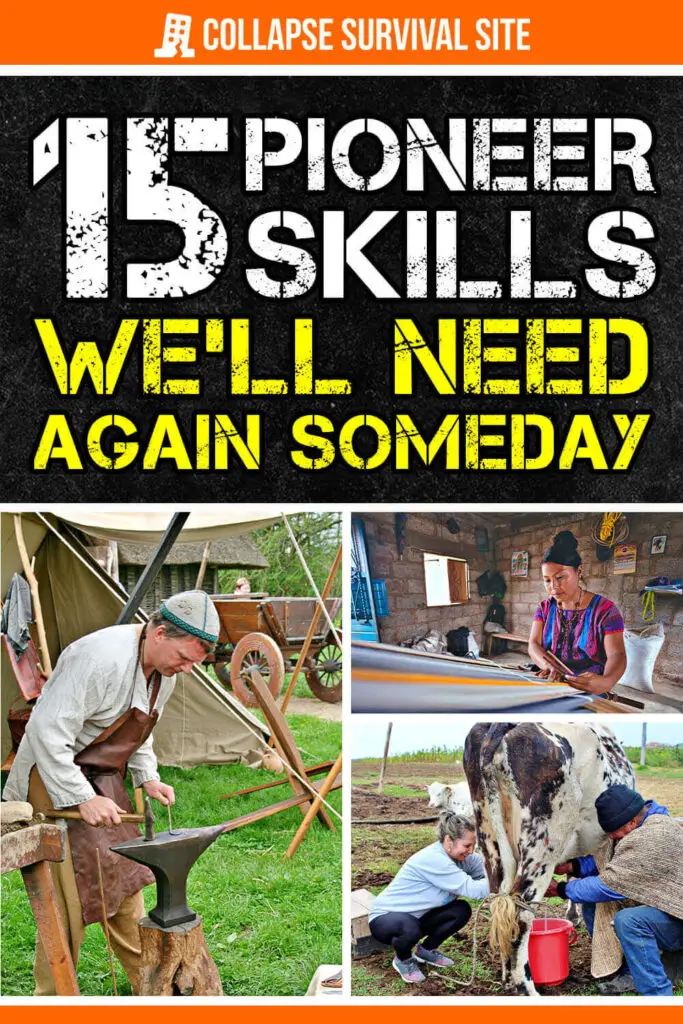
The modern age has brought along with it some incredible conveniences that have started to border on becoming necessities in our everyday lives.
Need some water? You can go and turn on a tap and get temperature-controlled water. Short on an ingredient for that dinner, you’re cooking? The grocery store is a couple of miles down the road with everything you could need.
This way of living is incredibly unsustainable because when it all comes crashing down, these things won’t be available as we plunge back into the metaphorical dark ages.
However, all is not lost, as in the not-so-distant past we lived differently than we do now. Let’s take a look at some pioneer skills that you’ll need again someday when SHTF.
Want to save this post for later? Click Here to Pin It On Pinterest!
The Pioneer’s Footsteps
Not to be confused with someone who is an inventor that paves the way for advancement, a pioneer is someone considered to live beyond the grips of civilization.
They are incredibly self-reliant and were considered a different breed of people as a testament to their ingenuity and dedication. In a time when society collapses, they possess skills that could keep a family thriving in the wilderness.
Learning the Old Ways
Before Amazon or Costco was around, folks had to grow, harvest, create, preserve, and maintain a variety of systems to stay alive. This required extensive trial and error and passing the resulting knowledge down through the generations.
The internet, while a great repository of information, can be easy to manipulate. A lot of the information needs to be vetted out completely before trusting. Learning pioneer skills through hands-on experience not only engrains the skill in the brain easier but provides a complete picture of the subject.
Sustainability
As a species, we have to realize that our way of life is unsustainable. There are too many outsourced cogs in the machine and as such, the old traditions have been ushered to the back of the crowd. When society falls and the machine grinds to a halt, people will be stuck scavenging, instead of thriving.
Pioneer skills are geared toward producing results that can be reproduced without compromising the land or resource.
15 Pioneer Skills To Learn Today
Some of these skills may seem commonplace to some, but that’s because they are important for those looking to be self-reliant when the grid goes down. These are traditional skills that rely on wit, innovation, and the desire to not only survive but thrive.
The following skills not only enable a person to survive, but they honor the legacy that our ancestors left for us through tradition and persistence. Some would consider these life skills rather than pioneer skills which would be an apt description.
Sewing
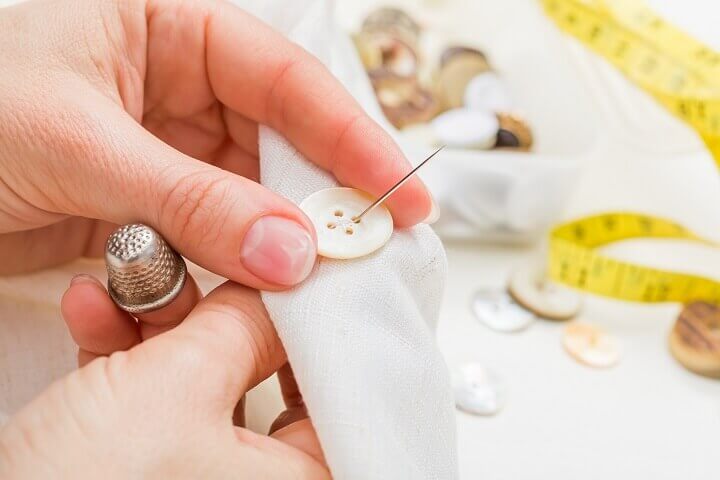
While not necessarily considered a lost art, home economics didn’t do a great job of teaching folks how to sew and repair their clothing. Without shops or internet boutiques to purchase new clothing from, mending your garments will become commonplace again.
While it is tough to learn these skills and some even take a lifetime to master, having this in your repertoire of skills will make extending the life of your clothing much longer.
Ready to start fixing your clothing? Check out this beginner tutorial on hand sewing.
Repairing Mechanical Equipment
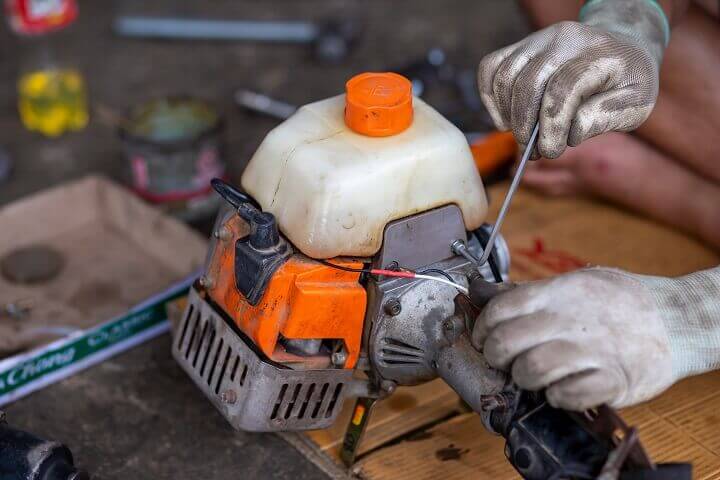
Technically, this isn’t a pioneer skill since they didn’t have mechanical equipment. However, they still had to know how to fix things like plows, harrows, bellows, spinning wheels, and so forth.
Much like your clothing, the equipment you’ll need for everyday tasks will need to be maintained by you or your family. This can include things like manual and automated machinery, vehicles, building systems, and the list goes on.
Understanding how different machinery works, be it cars, farm equipment, or household appliances, is an important skill to have. The nice thing is that you learn something like small engine repair, and the skills are transferable to other tasks.
If you can fix a lawn mower then you can fix a chainsaw. With a lack of mechanics and repairmen after SHTF, you won’t be able to simply book an appointment anymore.
New to the small engine and machinery repair? Check out this article to get started.
Bartering
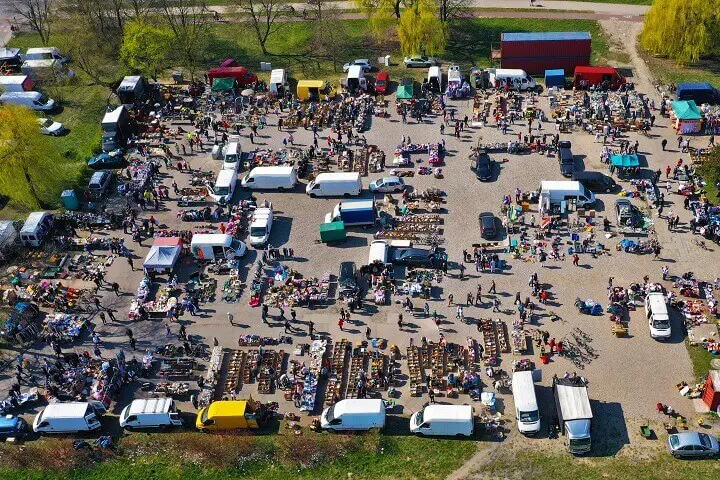
Before the advent of standardized currency, bartering was the main way to acquire goods and services from those around you. Simply put, bartering is the action of trading something for something else. It works quite effectively in small communities as it builds a sense of trust amongst the people.
This is considered a highly valued skill because it requires you to think outside of the mold and strategically acquire items or goods that others will need in times of societal crisis. In this day in age, cash is king but bartering will always be the emperor.
Learn more about how to barter and what to stock up on by reading this article.
Fire Starting
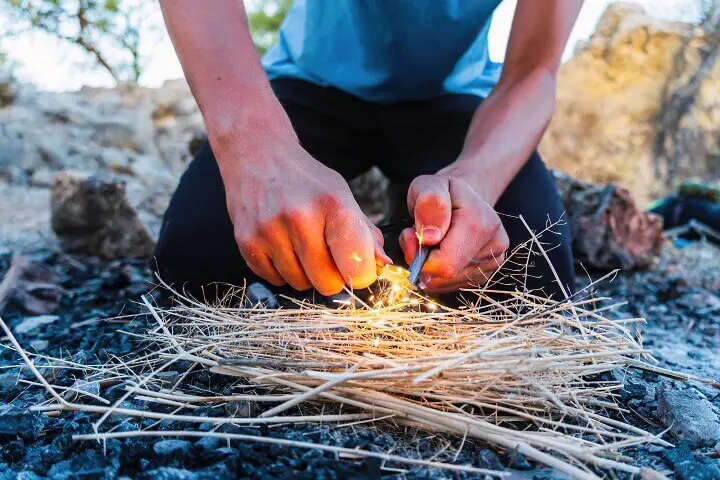
Being able to start a fire is not necessarily just a pioneer’s skill but it is seldom practiced by the majority that it merits a mention. As the power and heating infrastructure falls when SHTF you’ll need a consistent way to warm up, cook food, and boil water for survival.
Luckily, starting a fire is incredibly easy using a variety of easy-to-obtain materials that you can find out in nature. The best way to start is to make your fire kit with all of the components you need for ignition in any weather conditions. Items such as a Ferro rod, tinder bundle, waterproof matches, and pocket bellows can help you start a warming fire, even in the rain.
Brush up on your fire-starting skills with this article.
Shelter Construction
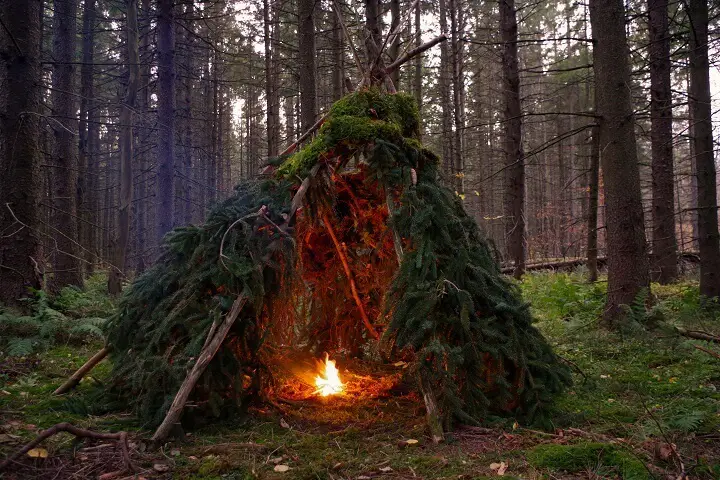
Pioneers didn’t have the luxury of having a contractor come out and take care of the hard parts of building a home. You more than likely won’t be able to either during the event of a societal collapse, and that’s why construction skills are important for you to work on now.
Once you’ve escaped the immediate area and the hustle calms down, you’ll need to start thinking about setting up shop somewhere. Even a simple structure can keep you and your family alive for the short term but you’ll need to consider the fact that you may need to build a long-term dwelling, like a house.
The best part? You don’t need to spend much on materials if you know how to build a home. Check out this article which teaches you the fundamental skills needed to build a cabin on a budget.
Blacksmithing
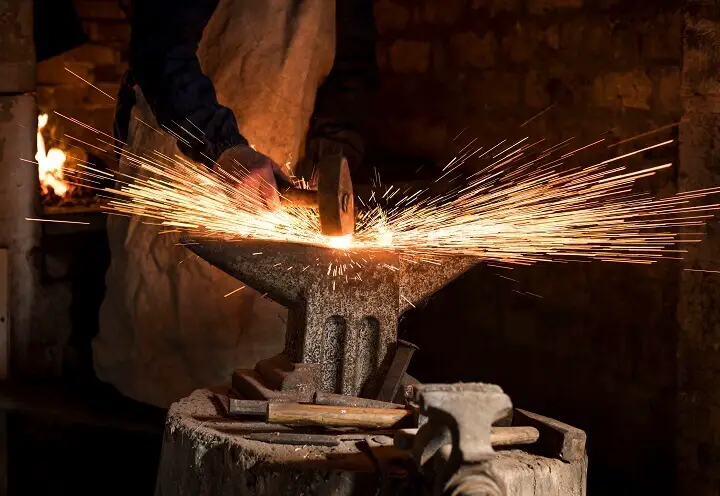
When thinking about blacksmithing, most people associate it with an incredibly hot forge, a massive anvil, and a gruff character hitting a piece of molten metal with a heavy hammer. But did you know it’s a viable skill to have and is incredibly accessible for beginners?
Think about the possibilities in a post-societal collapse. Being able to fix or forge metal tools is beneficial for yourself and the immediate community. It can be used to barter and provide high-quality implements for farming or hunting.
Considering you won’t be able to go to the hardware store and purchase new meal tools, learning simple blacksmithing will help. Check out how to create a blacksmithing forge.
Vegetable and Fruit Farming
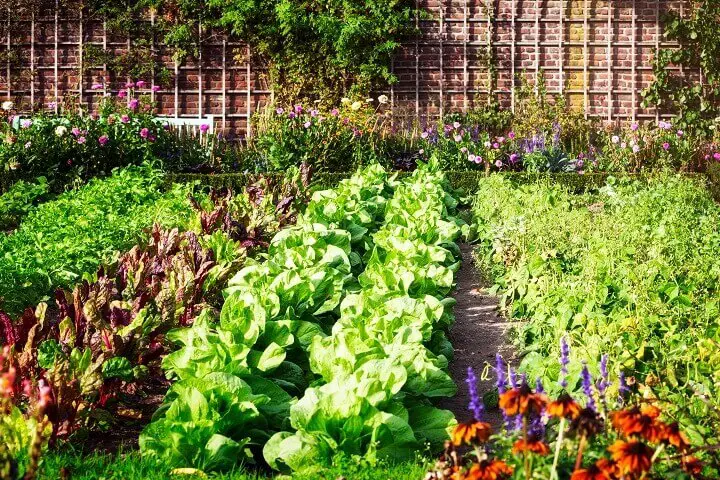
Growing your food is a dream of many people in society today but it will be a necessity when it all comes down. Having the ability to produce your food after a systemic collapse of society ensures your survival from a caloric perspective.
This includes learning when to start crops, what crops grow well in your area, how to manage pests and diseases, and best harvesting practices. It may seem daunting at first but the best approach is to research what you like to eat and learn about what it takes to grow it yourself.
Here is an incredible resource that teaches you how to create a functional market garden on your property!
Managing Livestock
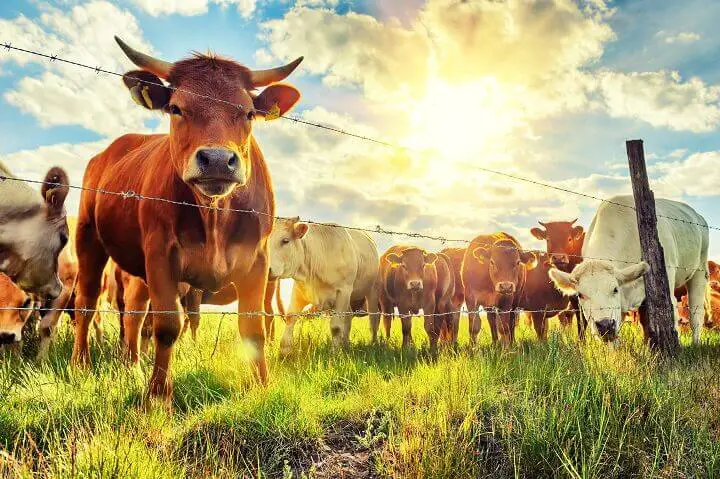
Chickens, pigs, and cows can provide many of the necessities we love to enjoy today. You can manage enough livestock to keep your family well-fed on as little as half an acre. Pioneers relied on their livestock to provide the means to feed their families. Unfortunately, a lot of knowledge has been lost since society became commercial production-focused.
Feeding these animals after a societal collapse can be tricky as feed stores will not be operating. Knowing to feed them naturally can effectively replace the crutch we have in these places now.
Check out these tips for raising livestock.
Cartography and Orienteering
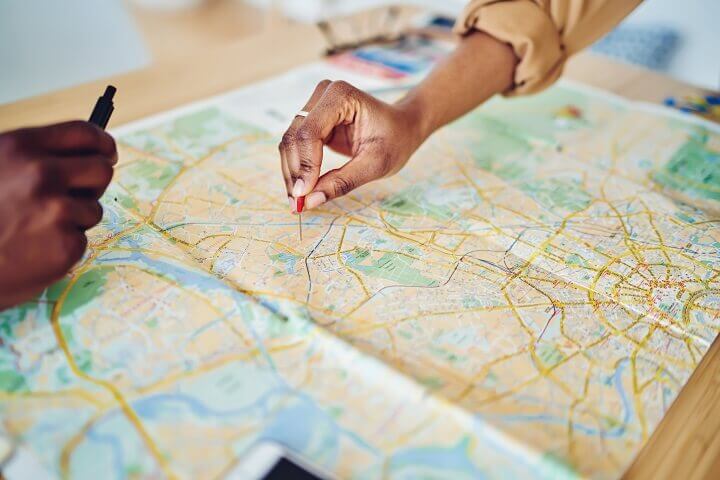
Exploring and mapping the world are vital pioneer skills to learn, especially since GPS might not be around after the collapse. Pioneers would use the sun, moon, stars, and other primitive techniques to ensure that they knew where they were going.
Nowadays, with the advent of GPS, getting directions is simple. But what if that were to go down? Would you know how to find true north? Would you be able to navigate the terrain while jotting it down on a map so you can find your way again?
Get started by learning how to use a compass and map.
Flora Identification
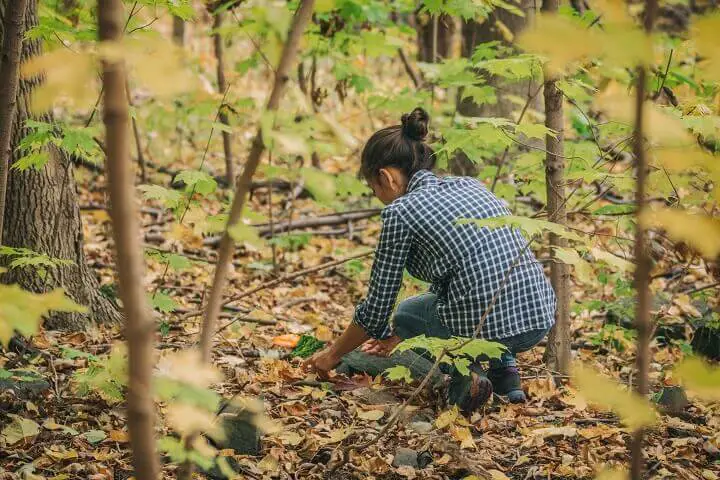
There is no sense in trudging off into the winter post-SHTF and not knowing what’s around you. A simple walk in the woods around your home can show you the versatility of the plants and trees around you.
Every year, people fall ill because they consumed something they didn’t identify properly. If you’re out in the woods and hungry, anything can look edible to you, and without the proper knowledge, instinct can lead you astray.
Of course, foraging for food or medicinal plants will be different based on where you’re located, but this guide to identifying plant leaves can help get you started on what to look for in terms of toxic plants vs. safe-to-consume ones.
Hunting/Fishing
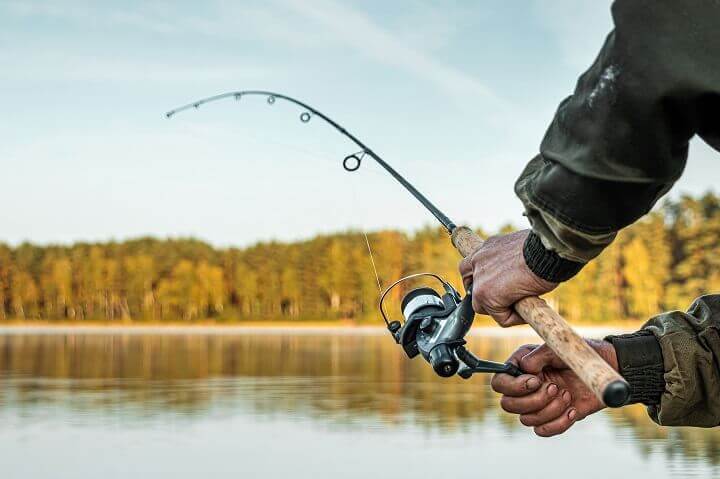
One of the most basic hunter-gatherer skills you’ll need to survive is hunting for your food. You won’t be able to live off stale pop tarts and other chemical-laden foods from the supermarket. Acquiring clean, healthy food is your ticket to surviving.
Fish in particular provide an excellent source of calories and nutrition, especially on days when you are expending a lot of energy. Waterways such as rivers and lakes are plentiful during the warmer seasons giving you an easy source of food.
While not everyone will be hunting deer or elk right away, being able to source and kill your own game is important. Here are some tips for hunting and fishing.
Trapping
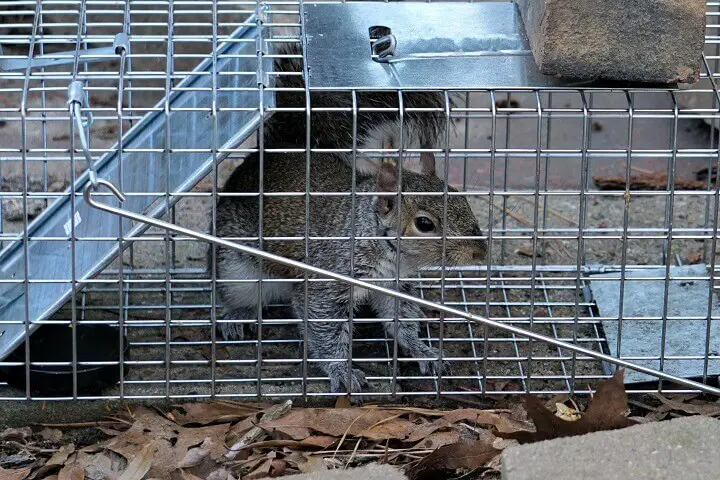
Most people won’t be expert hunters after SHTF and scrounging up some food might prove difficult. Trapping is a passive way to get food without wasting the calories that hunting would consume.
Basic snare taps can catch rabbits, squirrels, and chipmunks which make for great supplemental food for you. Learning basic skills to understand where to trap, animal behavior, and how to ethically dispatch an animal will increase your chances of success.
Check out this simple tutorial on making a simple snare using nothing but paracord or wire. Once you’ve mastered this kind of trap moving on to others will be simple as they follow a similar principle.
Food Preservation
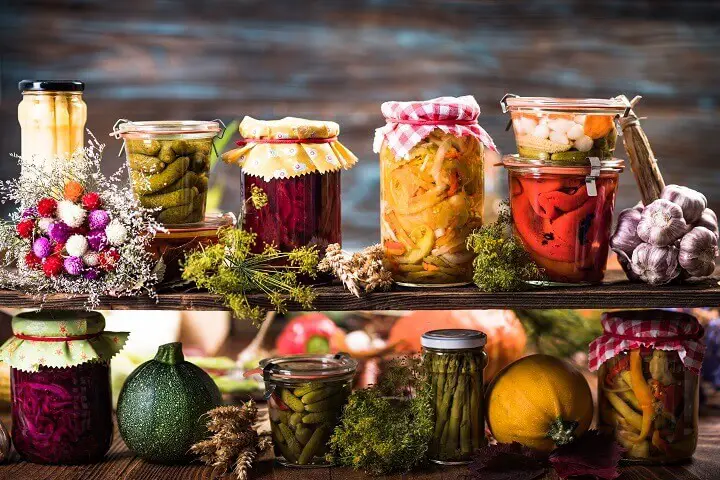
Once you’ve harvested or hunted your food, you need to learn how to preserve it before it spoils. Pioneers had several methods for preservation, including drying, curing, salting, canning, and even freezing with impromptu ice boxes.
Having modern conveniences such as fridges and freezers will more than likely be in the past, at least for a little bit after SHTF. Luckily, many of the traditional preservation methods can be used without electricity or modern equipment.
Here is a great resource to get you started preserving your food in an off-grid situation using nothing but bushcraft skills. Once you have these fundamentals down then you can improvise and innovate your way of preserving your haul.
Skinning and Tanning
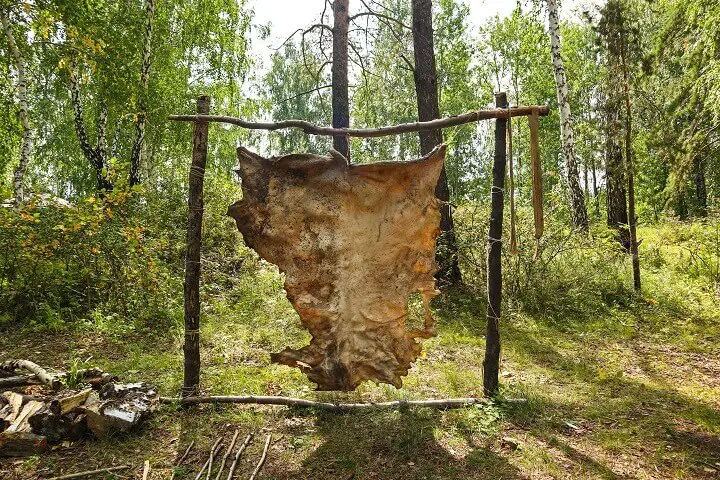
Pioneers tried to make use of every last bit of the animal that gave them sustenance. Skinning animals provide furs and guides that can be traded or used to keep your family warm during the cold months.
It also respects the animal that gave its life to you. You’d be surprised at the uses that a wild animal can provide, everything from food and clothing to lighting and bait for other hunting needs.
Basic skills to learn include separating the skin, properly tanning the hide so it doesn’t rot, and how to preserve the fur of the animal. It is an involved process that has many steps, but this tutorial breaks it down in the easiest way.
Horse Riding
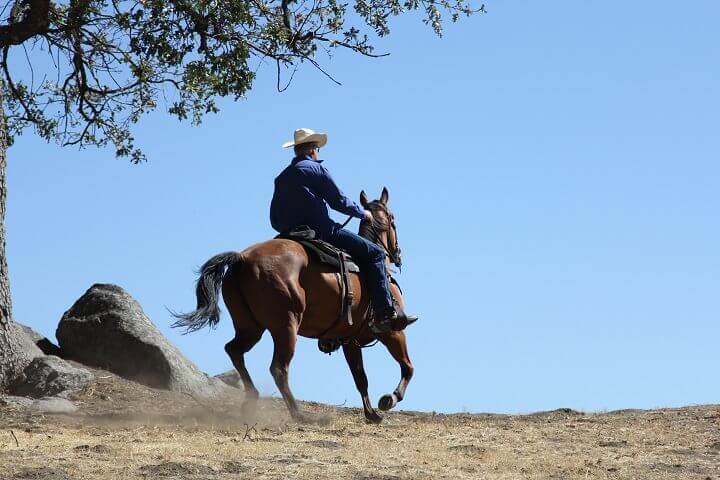
Transportation in a post-societal collapse will be forever altered. Gone will be the days of waiting in line at a gas station or charging spot. Most people may think they can get by without a vehicle but they fail to recognize that it becomes necessary when heavy things need to be transported.
If you’ve ever ridden a horse then you know that it’s a balance of skill and understanding the animal that you’re riding. On top of that, you’ll have to learn how to fall properly, bridle a horse, and maintain the animal’s health.
To get you started there is a step-by-step tutorial on how to ride a horse, including tips and tricks that’ll help you understand how a horse’s mind works while you’re riding.
Final Thoughts
While a societal collapse is going to happen, as it has for every great civilization, it’s not too late to learn the necessary skills to thrive without having to rely on our current infrastructure.
It’s best to tackle some of the items you’re already familiar with as trying to learn an entire library of skills can be disheartening for beginners. If there is a sense of urgency in your area, creating a group of like-minded individuals with different strengths is a great approach to learning about pioneer skills.
Like this post? Don’t Forget to Pin It On Pinterest!